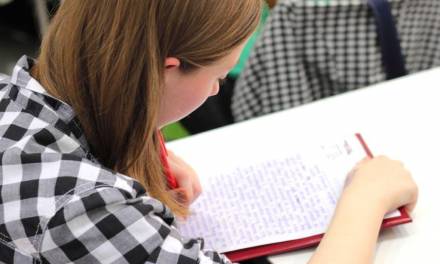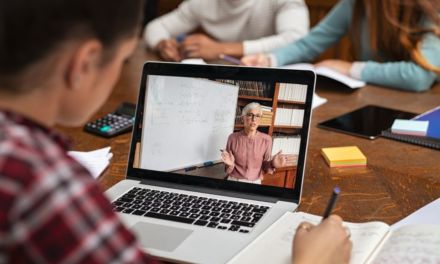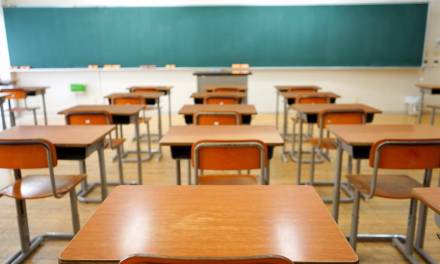Today is the first day of school closures in England, after it was announced by the Government last week.
Schools are now only open for children of key workers. Meanwhile, the vast majority of children need to be educated and entertained at home.
But how can parents ensure they work from home and continue to educate your child at home?
Why were schools closed?
The Government has closed schools to restrict social contact. The coronavirus pandemic can spread from person-to-person as well as spread on surfaces. Though deaths are not common in young people, it can spread through children and then onto their families.
The Government were originally reluctant to close schools – due to children being more likely to be looked after by grandparents who are statistically more at risk.
However, with an increasing number of parents working from home and elders increasingly aware of their risks, the Government took the decision to close.
Who still needs to go to school?
The school needs to remain open so that key workers can still go to work. Because their work is so vital, the Government is keen to ensure that people in these groups are able to carry out their job with as little restriction as possible.
Key workers that are described include:
Health and Social Care: NHS staff, frontline health and social care staff including doctors, nurses, midwives and paramedics.
Education and childcare: Staff including nursery, primary and secondary – including teaching assistants and social workers.
Food: Any staff working within the food chain – production, processing, distribution sale and delivery of food.
Public services: These include postal workers, those working in the justice system, religious staff and people responsible for managing the deceased and those in public service broadcasting.
Government: Staff from local and national Governments in admin roles.
Utility staff: Staff needed to ensure that oil, gas, electricity and water and sewerage operations continue running. This also extends to staff in civil nuclear, chemical and telecommunications. This includes postal services and essential financial services.
Public safety and security: This section includes the police and support staff, Ministry of Defence staff and staff from the armed forced. It also includes fire and rescue, border security, prisons and probation.
Transport: These include air, water, road, rail and freight transport services.
What is everyone else doing?
The above list may also include additional key workers. You can find out more here.
The Government states, “If you do not need to take your child to school because your job is not essential to public health and safety, please try to stay at home.”
Home learning will be being used by almost all students. The school may use their VLE, as well as email systems to send through work. Many schools will have provided pupils with additional work prior to leaving school on Friday.
A lot of schools are using online learning platforms, like EDLounge.
EDLounge Limited provides access to subjects on the curriculum. Over 11,000 lessons are available. Further, pupils are safeguarded with access to live teaching, alert mechanisms and eyes-on learning. EDLounge Limited was inspected by Ofsted in 2019. You can read the report here.
How to continue to educate your child at home
Here are top tips to educating your children at home:
Prioritise your children: Jules White, headteacher at Tanbridge House School, Horsham said, “Great learning only happens when children feel happy, safe and secure.”
Ensure a routine: Lillie Rosenblatt, teacher at Brookfield Primary School in Camden, London said, “Children need normality, familiarity and structure – so keep to a routine. It makes home schooling easier and helps children to realise this is not a holiday and that teachers are expecting learning to take place to some degree.”
Let your child get bored: Chris Dyson, headteacher at Parklands Primary School in Leeds, “My advice is let your kids have a holiday and enjoy themselves until they get bored. Then they will want to get on to the learning they have been set. The homework is there not to improve standards but to ease boredom.”
Limit tablets, phones and TV: Jules White added, “It will be important for friends to stay in virtual contact with each other as long as interactions are friendly and supportive – but too much screen time can be unhealthy. It has negative effects on physical and mental health.”
Enhance literacy and numeracy: Jordan Bickel of Grand Avenue Primary and Nursery School, Surbiton said, “Continue to practice essential English and Maths. Review fundamental maths skills such as number bonds, time tables, division facts and addition and subtraction strategies. Encourage your child to write for pleasure about what they’ve done that day.”
Remember that learning should be fun: Emily Proffitt, headteacher at Tittensor First School, Stoke-on-Trent said: “Children need to have a plan or timetable right from the start, and to stick to it using a timer. But activities should not just be solely English and maths-based. Making learning fun is vital – and essential to reduce boredom.”
As well as EDLounge Limited supporting secondary schools, you can also use EDArcade to support primary school pupils. EDArcade makes learning fun through games-based education with access to over 100 games. Subjects include Maths, English, Science and PSHE – as well as topics including British Values and Bullying.
For more information click here or call 01909 776 906.









